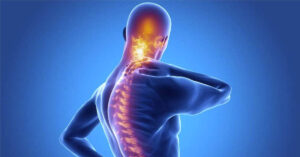What is Epilepsy?
Epilepsy is the tendency to have repeated spontaneous seizures (fits/convulsions). Seizures are episodes of disturbed brain electrical activity that cause changes in attention or behaviour.
The normal brain continuously has electrical currents in a controlled manner. Fits or seizures occur because of brief excessive currents in the brain. The symptoms of a seizure vary depending on the part of the brain that has abnormal current. Accordingly there are different types of fits or seizures.
Grand Mal Seizure
The classical grand mal seizure is a result of the current invading the entire brain. In this type of seizure the person falls to the ground and becomes stiff and then shakes all over. There may be frothing at the mouth, the person may lose urine control and also bite his tongue. These are commonly called convulsions.
Partial Seizures
These are seizures due to abnormal current in only some portion of the brain, the symptoms may vary with the location of the current.
Simple Partial Seizure
The person is fully aware and has an unusual sensation or jerking of his limbs, and recollects this event later.
Complex Partial Seizure
The person is not fully in his/her senses and has some irrelevant automatic behaviour. The person cannot recollect this event later. This is called a complex partial seizure.
Epilepsy may occur due to
* Tumour
* Brain stroke
* Head injury due to an accident
* Abnormalities in the function of the neurons without any brain damage
Epilepsy can start at any age, but it commonly starts at extremes of age, i.e., in small children and the elderly. A large percentage of children with epilepsy outgrow the problem with age.
It is advisable to plan the treatment with a specialist doctor who treats epilepsy viz a neurologist or an epilepsy expert. However, about 20-30% of people with epilepsy continue to have seizures despite medications. Some of these patients can benefit with brain surgery. The decision for suitability for surgery depends on detailed investigation results. The following studies are particularly useful in identifying the epileptic firing focus during the presurgical evaluation.
Long Term Video EEG (Electroencephalogram) Evaluation: It is one of the key tests performed to establish the diagnosis of spells whose epileptic nature is not certain and to determine the area in the brain from which the seizures originate (epileptic focus).
3 Tesla MRI: This is very useful in identifying subtle anatomical lesions that may be missed on routine MR images.
Functional MRI: This aspect of MR evaluation studies identifies areas of the brain associated with specific functions like the arm and leg movement, and vision, speech and language. This is useful for non-invasive planning of surgical strategies, such that post-surgical motor, visual or language deficits may be avoided.
SPECT & PET-CT: These are also available to evaluate more challenging patients with focal epilepsy and a normal MRI. These are used to provide visual evidence of the functional
There have been major breakthroughs in epilepsy treatment in the last few years. Over 70% of the people with epilepsy have a good control of their seizures with medications.
Several new medications available over the last decade have very few side effects. At present there are over 15 different types of medications available for the treatment of fits.
How long one needs to be on medicines
Epilepsy is not a disease. Epilepsy can be of different types, due to different causes, and can greatly vary in severity as well. Therefore, the treatment of choice and duration will differ from case to case. The correct choice of medication has to be made, with careful consideration by the doctor. With the right medication and advice, most people with epilepsy can lead normal lives.
Can medications cure Epilepsy?
Medications suppress seizures and keep the patient seizure free, but they do not remove the tendency to seizures. A large percentage of patients outgrow the tendency to several episodes of seizures with age, and can eventually discontinue medications.
Is it true that Epilepsy can be cured with Brain surgery?
It is advisable to plan the treatment with a specialist doctor who treats epilepsy viz a neurologist or an epilepsy expert. However, about 20-30% of people with epilepsy continue to have seizures despite medications. Some of these patients can benefit with brain surgery. The decision for suitability for surgery depends on detailed investigation results.
What are the common dos and don’ts for an Epileptic?
Regularity with medications is of utmost importance, even when there are no fits. Even a single missed dose can precipitate a seizure
If a single dose is forgotten, you can take the dose as soon as you remember. The next dose can be taken as per regular schedule
Do not change medication brands without consulting your doctor
Do not stop medications before tests unless specifically asked to do so
Ensure adequate sleep everyday. Be regular with your sleep and wake up times. About 7-8 hours of sleep per day is ample for a day. Lack of sleep is one of the common factors that triggers seizures
Dietary restrictions are not required in most of the patients with epilepsy. However, fasting and alcohol should be avoided.
Ask your doctor about driving, swimming, cycling and handling heavy machinery
Continue with your regular exercise and non adventure sports
What seizure first aid measures should one be aware of?
In A Patient Having A Major Tonic Clonic Seizure
Put the patient on a flat surface, turn him/her to one side and watch the clock to note the duration of the event
Hold the person down gently; ensure he/she is safe. Do not put any object forcibly into the mouth during a seizure. Do not restrain limbs very forcibly
Allow saliva to drool out of the mouth
Do not feed water or food until the person is fully awake
In Acute Seizure
Most seizures stop spontaneously in about 2-3 minutes
If a major seizure with limb jerking lasts for more than three minutes you will need medical help and emergency medications
Ask your doctor for a suitable emergency medicine during a seizure
Myth:
Epilepsy is caused because of possession by evil spirits. They should be taken to tantriks and godmen for removing these evil spirits.
Fact:
Epillepsy is because of periodic excessive electricity in the brain that produces abnormal behavior or movments. Please take the person to a qualified medical practitioner for treatment..
Myth:
Epilepsy is contagious. Never touch a patient having seizure. The disease will be passed on to you.
Fact:
Epilepsy is NOT contagious. The patient having seizure needs your help. You will not get Epilepsy by touching the patient.
Myth:
Having a person in the family with epilepsy is a stigma, so this fact should be concealed.
Fact:
It is not a stigma and every effort should be made to remove this stigma through correct knowledge.
Myth:
Epilepsy is a form of madness,so it should be treated in a lunatic asylum.
Fact:
Epilepsy is a disease of the brain,so it should be treated by physicians or neurologists.
Myth:
Children with epilepsy are dull and cannot learn, so they should not be sent to school.
Fact:
Children with epilepsy can be extremely intelligent. There are many examples of high achievers in history who have had epilepsy. Usually it is the stigma against epilepsy which prevents parents from sending their children to school, to learn and achieve their full potential.
Myth:
Women with epilepsy can never have children. So they should not get married.
Fact:
Women with epilepsy can safely get married and they can safely have children under specialist supervision.
Myth:
A seizure can be terminated by putting a key in the patient’s hand or by making the patient smell onions or a leather shoe.
Fact:
KEYS or SHOES do not stop seizures!!! MOST SEIZURES stop AUTOMATICALLY in a couple of minutes.
Turn the patient to one side and put a soft object under his head to prevent injury..
Myth:
Marriage will cure epilepsy
Fact:
Marriage has no impact on treatment of epilepsy.



